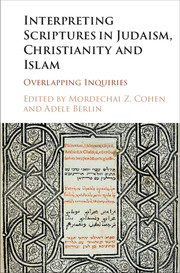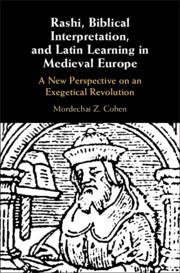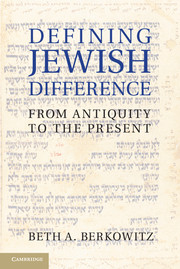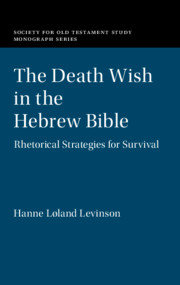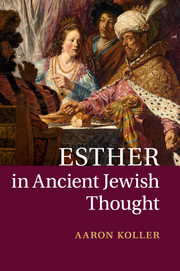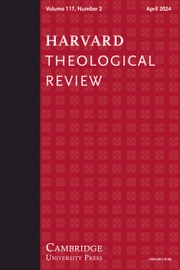Interpreting Scriptures in Judaism, Christianity and Islam
Overlapping Inquiries
$135.00 (C)
- Editors:
- Mordechai Z. Cohen, Yeshiva University, New York
- Adele Berlin, University of Maryland
- Date Published: June 2016
- availability: Available
- format: Hardback
- isbn: 9781107065680
$
135.00
(C)
Hardback
Other available formats:
eBook
Looking for an examination copy?
This title is not currently available for examination. However, if you are interested in the title for your course we can consider offering an examination copy. To register your interest please contact collegesales@cambridge.org providing details of the course you are teaching.
-
This comparative study traces Jewish, Christian, and Muslim scriptural interpretation from antiquity to modernity, with special emphasis on the pivotal medieval period. It focuses on three areas: responses in the different faith traditions to tensions created by the need to transplant scriptures into new cultural and linguistic contexts; changing conceptions of the literal sense and its importance vis-à-vis non-literal senses, such as the figurative, spiritual, and midrashic; and ways in which classical rhetoric and poetics informed - or were resisted in - interpretation. Concentrating on points of intersection, the authors bring to light previously hidden aspects of methods and approaches in Judaism, Christianity, and Islam. This volume opens new avenues for interdisciplinary analysis and will benefit scholars and students of biblical studies, religious studies, medieval studies, Islamic studies, Jewish studies, comparative religions, and theory of interpretation.
Read more- Offers a truly interdisciplinary study that draws on the perspectives of literary criticism, legal hermeneutics, intellectual history, and cultural and religious studies
- Explores rhetoric, poetics, and strategies of reading sacred and secular literature
- Suitable not only for scholars and graduate students, but also clergy and educated laypeople
Reviews & endorsements
'This volume brings together an excellent collection of essays that will prove useful for scholars in many fields including hermeneutics, medieval religious thought, the history of biblical interpretation, and the history of the three Abrahamic religions. The two outstanding qualities of the volume are the various chapters on Islamic interpretive tradition and the four chapters comprising part 2s on the sensus literalis. In the case of this first strength, the chapters dealing with issues within the Islamic interpretive tradition go a long way in both introducing this important vein of scriptural interpretation to the interested reader and showing in a compelling manner the various points of contact between Islamic interpreters and those from Judaism and Christianity. In the second instance, part 2 of this volume represents one of the best treatments of the sensus literalis available to an academic readership. For these reasons, this volume deserves much attention.' Stephen D. Campbell, Journal of Hebrew Scriptures
Customer reviews
Not yet reviewed
Be the first to review
Review was not posted due to profanity
×Product details
- Date Published: June 2016
- format: Hardback
- isbn: 9781107065680
- length: 402 pages
- dimensions: 231 x 160 x 33 mm
- weight: 0.68kg
- contains: 16 b/w illus.
- availability: Available
Table of Contents
Introduction: intersecting encounters with scriptures in three faiths Mordechai Z. Cohen
Part I. Scriptural Texts in Changing Contexts:
1. The emergence of biblical interpretation in antiquity James Kugel
2. Disclosing the mystery: hermeneutics of typology in Syriac exegesis Sidney Griffith
3. 'We have made it an Arabic Qur'an': the permissibility of translating scripture in Islam in contrast with Judaism and Christianity Meir Bar-Asher
4. The unmoved mover begins to move: literary and artistic renderings of the Christian Bible Piero Boitani
5. Deconstructing the dual Torah: a Jewish response to the Muslim model of scripture Meira Polliack
Part II. Conceptions of the Literal Sense:
6. The literal sense of Christian scripture: redefinition and revolution Jon Whitman
7. Figuring the letter: making sense of 'sensus litteralis' in late-medieval Christian exegesis Alastair Minnis
8. Conceptions of the literal sense (ẓāhir, ḥaqīqa) in Muslim interpretive thought Robert Gleave
9. Emergence of the rule of peshat in Jewish Bible exegesis Mordechai Z. Cohen
Part III. Rhetoric and the Poetics of Reading:
10. Reading Virgil, reading David: poetry and commentary in the medieval school of Rheims A. B. Kraebel
11. On the figurative (majāz) in Muslim interpretation and legal hermeneutics Wolfhart Heinrichs
12. Words of eloquence: rhetoric and poetics in Jewish peshat exegesis in its Muslim and Christian contexts Mordechai Z. Cohen
13. Classical rhetoric and scriptural interpretation in the Latin West Rita Copeland
14. Robert Lowth's biblical poetics and Romantic theory Stephen Prickett
15. From scripture to literature: modern ways of reading the Bible Adele Berlin.-
General Resources
Find resources associated with this title
Type Name Unlocked * Format Size Showing of
This title is supported by one or more locked resources. Access to locked resources is granted exclusively by Cambridge University Press to instructors whose faculty status has been verified. To gain access to locked resources, instructors should sign in to or register for a Cambridge user account.
Please use locked resources responsibly and exercise your professional discretion when choosing how you share these materials with your students. Other instructors may wish to use locked resources for assessment purposes and their usefulness is undermined when the source files (for example, solution manuals or test banks) are shared online or via social networks.
Supplementary resources are subject to copyright. Instructors are permitted to view, print or download these resources for use in their teaching, but may not change them or use them for commercial gain.
If you are having problems accessing these resources please contact lecturers@cambridge.org.
Sorry, this resource is locked
Please register or sign in to request access. If you are having problems accessing these resources please email lecturers@cambridge.org
Register Sign in» Proceed
You are now leaving the Cambridge University Press website. Your eBook purchase and download will be completed by our partner www.ebooks.com. Please see the permission section of the www.ebooks.com catalogue page for details of the print & copy limits on our eBooks.
Continue ×Are you sure you want to delete your account?
This cannot be undone.
Thank you for your feedback which will help us improve our service.
If you requested a response, we will make sure to get back to you shortly.
×
